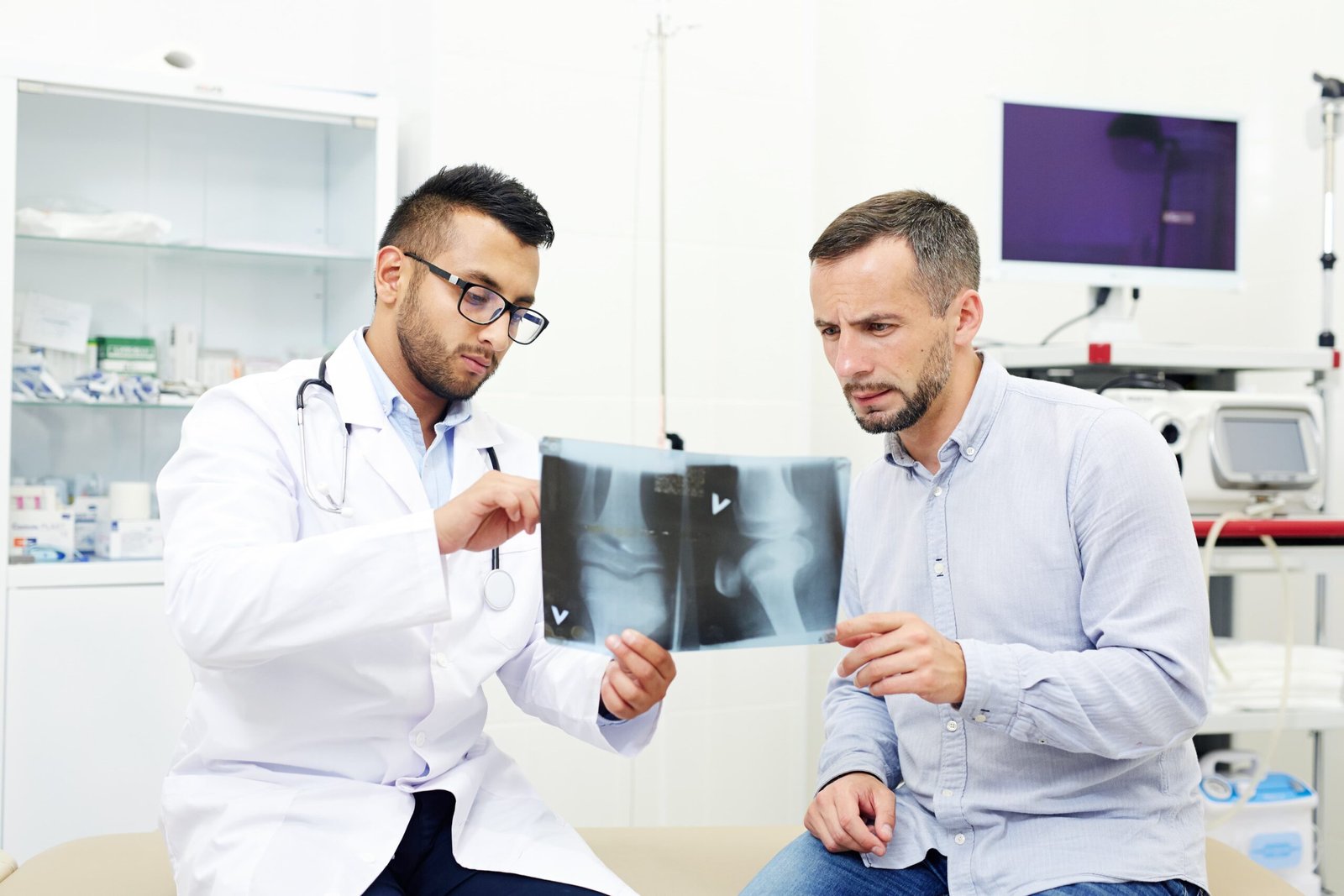Orthopedic doctors treat a wide range of conditions, including fractures, joint pain (such as knee, hip, or shoulder pain), osteoarthritis, rheumatoid arthritis, torn ligaments, tendon injuries, sports injuries, carpal tunnel syndrome, herniated discs, scoliosis, and other spinal deformities.

